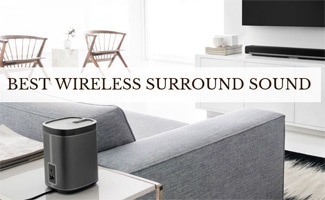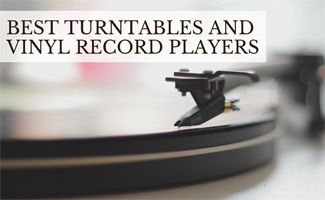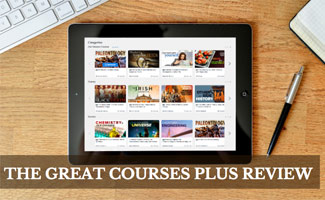Beginning Meditation: First Steps In My Journey
 If you are stress free, stop reading this. Or maybe finding your inner light and purpose are of no importance to you. But, if you are like me, life is filled with stress every minute of every day and it is hard to find a quiet place to be still. This is life in the modern age. However, we do not have to accept this as our reality 24/7. In fact, I refuse to accept stress as my norm any longer. This is why I started a daily meditation practice three months ago and have not looked back. It may not have dissolved all of the stress in my life but it has certainly provided new tools for calming the mind in busy times while also allowing for more mindful moments in my daily life.
If you are stress free, stop reading this. Or maybe finding your inner light and purpose are of no importance to you. But, if you are like me, life is filled with stress every minute of every day and it is hard to find a quiet place to be still. This is life in the modern age. However, we do not have to accept this as our reality 24/7. In fact, I refuse to accept stress as my norm any longer. This is why I started a daily meditation practice three months ago and have not looked back. It may not have dissolved all of the stress in my life but it has certainly provided new tools for calming the mind in busy times while also allowing for more mindful moments in my daily life.
Recently, I had the opportunity to answer some questions for a piece that the lovely Juliet Glassroth of BitterBuddha.com was working on around these ideas. It was a good exercise for me to explore how far I have come and also reevaluate why I am walking this path. In the past few weeks, many stressful situations have presented themselves in my life. It has tested my dedication to my practice and also its ability to act as a successful tool for managing life’s difficult moments. So, I was pleased to look back on this interview that I did just a week before these crazy days hit and remember why I meditate. I hope you will find some inspiration in the thoughts of the calmer meditator I was a few weeks ago. Truth be told, life will always hand us lemons but of greatest importance is remembering that lemonade is just a short practice away.
Questions in bold were posed by Juliet and the paragraph’s are my responses.
Why do you meditate?
To calm my mind and access better emotional control in my life. I also seek a higher truth but have not found it just yet… I am sure it will come, right? 😉
How often do you meditate?
Daily, generally in the morning after an at-home yoga session. I find the most benefit when I meditate for a minimum of 12 minutes. In fact, I have found that the longer the better but 15-20 minutes is my norm and less than 12 does not give me much time to settle down before the end bell is ringing.
What type of meditation do you practice? (E.g. mantra, vipassana, mindfulness)
I practice any and all meditation I find. I focus mostly on vipassana and mindfulness – the deep connection between body and mind. I would say that I use each of these options 50% of the time, respectively.
What is Vipassana?
Vipassana actually means “to see things as they really are” and it focuses on self-exploration and self-discovery to move past the negative blocks in the mind to find its true essence of purity and light, compassion and acceptance. It is a Buddhist practice passed down through the ages from practitioners in India.
What tools do you use?
I use an app called Insight Timer to hold me accountable and keep me on track. It offers both quiet time with a timer or guided meditation. I am also making my way through a book that was recommended by a friend: Mindfulness in Plain English by Bhante Henepola Gunaratana. This book has proven very helpful in gaining a better understanding of how and why we meditate. I also like it because it is not religiously-based like most meditation books are. So no matter what you believe in from a religious standpoint, you will gain a full understanding of the mindfulness aspect of meditation.
Why did you begin your meditation practice?
I have tried beginning meditation without success many times in the past but found more accomplishment after a weekend at Yogaville this past February. The Insight Timer app has really helped to drive my success and so has the support and encouragement of my husband and like-minded friends who are also on a spiritual path to find more fulfillment in our time in this body.
To “train your mind”?
Yes. If I can train myself to be more mindful in my daily activities, I can better manage stress, focus and even work towards building more meaningful relationships by being more in the moment with the people I choose to spend time.
To improve your life? (if so, in what ways did you imagine it would do so?)
The main reason I started meditating was to reduce anxiety and increase my stress management tools. However, I have found that it has improved my life in many other ways too. As I reflect more inwardly on who I am and my purpose, I am better able to share my compassion and joy with those I love most. This is a gift that I never expected but have found to be the greatest one of all. So, yes, I would definitely say that meditation has improved my life and will continue to do so even more with greater practice.
For spiritual reasons (e.g. to connect to spirit or reach Samahdi)?
Yes. I would love nothing more to connect with “God” or reach samadhi (Definition from Wikipedia: “a state of intense concentration achieved through meditation. In Hindu yoga this is regarded as the final stage, at which union with the divine is reached (before or at death).”), but this was not my initial purpose. I feel confident now that I am getting closer to my inner spirit with each moment of quiet self-reflection. If one has studied Buddhism, Zen, etc. it is taught that the true inner spirit of all living beings are connected, are one and are “God”. No matter what you call the intuition or higher power you worship or seek, I now believe that there is an inner spirit in all of us that is always accessible – we just have to take the time to listen and be quiet enough to hear. So, yes, I am seeking spiritual connection and I am finding it first with myself. I am thankful for this opportunity to listen more carefully to my intuition and find my purpose on this planet. However, I am only at the beginning. So the best is yet to come. This makes me curious and excited to meditate each day!
Has the experience of meditation met or exceeded the expectations you envisioned?
Exceeded my expectations as I have seen real shifts in my anxiety level and ability to cope with stress in a very short period of time. This also encourages me to continue and grow in my practice. As mentioned above, I also have found an unexpected yet desired spiritual connection and quiet which has far exceeded my expectations.
Do you feel your meditation practice has changed you? If so, how?
Yes, it has given me tools that I’ve been seeking outside of medication (anxiety medicine) for years! I am currently working with my doctor to slowly wean off my medicine (Klonapin) and so far, so good. I am only 4 weeks into the weaning process and it is a 6 month process but I am optimistic with the success so far.
Has the experience of meditating changed for you over time? For example, do you find it easier now to quiet your mind than you did when you first began?
Yes – it is definitely different now than it was 2 months ago when I was just beginning meditation. But it depends on the day as to how successful I am at quieting my mind 😉 I try to remember one of the primary teachings of vipassana – meditation is all about enjoying the journey rather than focusing in on the destination.
Do you find it challenging to meditate? If so, on what ways?
Sometimes… it depends on my state of mind going into my practice. But, I always feel better after I have taken the time to make it a priority. Maybe not a complete turnaround but I feel significantly better. I think the hardest part is sitting down and giving myself the time and permission to take a break. When I make it a priority in my day, I am always thankful. I find that doing it in the morning before work is the best way to (1) ensure I actually do it and (2) set my mind right to handle the day and all it will bring.
What would you tell someone who says they just can’t meditate?
I would ask them to tell me about their experience and why they feel this way. There is a good chance that you are just like the rest of us who have trouble stopping the bombardment of endless outside thoughts from our busy lives and world. I would challenge that meditation is just that – learning to notice the thoughts, rather than the impossible notion of not having them at all. We all have busy minds. Meditation practice teaches us to notice the thoughts, not to judge them but to gently let them go, for now, as we focus on breathing, mantra or whatever the focus may be for their respective meditation practice. No one is perfect and our brains do not stop working just because we want them to, unfortunately! However, by practicing to notice our thoughts and release them one by one, without judgement, we can form a quieter mind and a better ability to manage our thoughts vs. letting them always manage us.
Is there anything else you want to share about your meditation practice?
Just do it. And do it for 30 days. If you miss a day, no worries. Try again tomorrow. There is always the next second, the next hour, the next day or week to start over. Meditation is all about accepting where you are and who you are. Acknowledge without judgement so that you can move forward with a firm conviction to try, try again. If you do not try, you will never know what could’ve been and 20 seconds of peace is better than 20 seconds of chaos, even if that is the only true peace you find in a day.
Learn more about letting go of your assumptions regarding meditation in this video:
Learn more about mindfulness with our yoga articles.
Why did you start meditating? What do you do to keep yourself on track with regular meditation?




